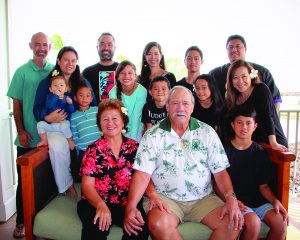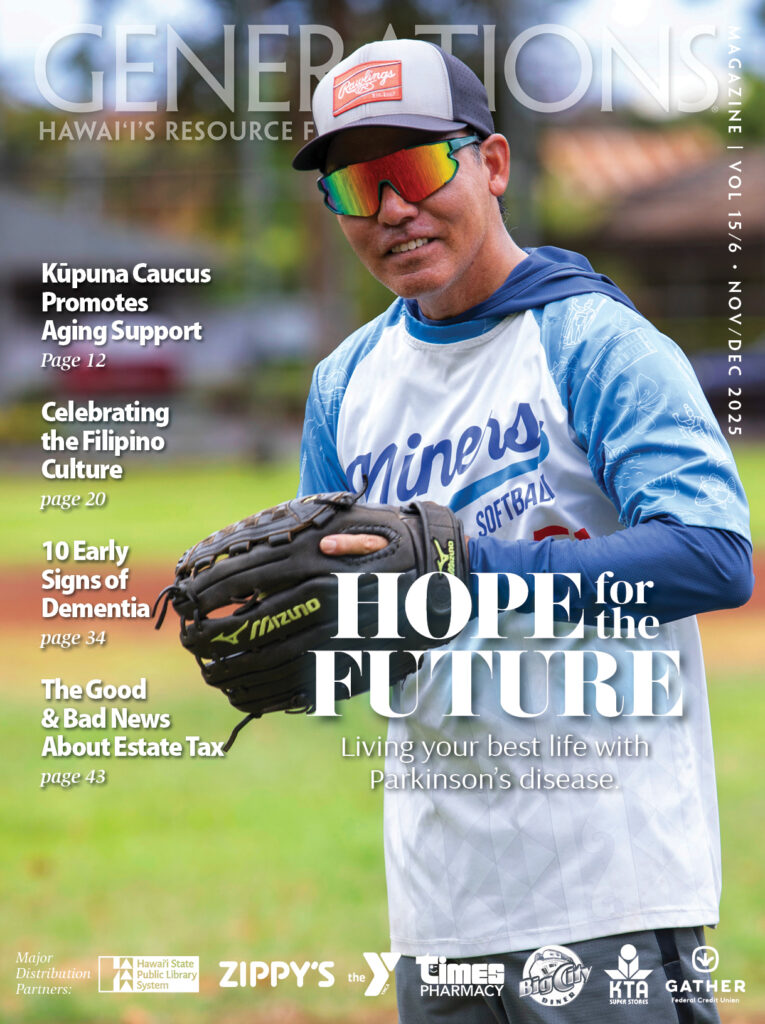
John “Longie” Dudoit returned to Moloka‘i in 1969 after a year in the infantry in Vietnam and married his high school sweetheart.
“But something wasn’t right,” John recalls. “In our first years of marriage, Lorna stood by me but couldn’t understand what was happening.”
Back then, post-traumatic stress disorder (PTSD) wasn’t widely understood. It was difficult for veterans to get help. “My wife’s strength was the only thing that kept me going,” John says. “But along the way, I knew I needed help.”
John credits Dr. Kathleen McNamara, a Veterans Administration psychiatrist, with helping him work through his PTSD. John now runs the nonprofit Molokai Veterans Caring for Veterans, helping them attain VA medical services. John says the keys are persistence and asking for help, something veterans may be reluctant to do.
In West Hawai‘i, Lori Smith-Starnes helps Big Island veterans as an Elizabeth Dole Foundation Fellow. The foundation works to empower and support military caregivers. Lori is a military caregiver and volunteer who reaches out to veterans about the services available to them and their families. Most veterans know services are available, but may not know where to get information.
For example, veteran and military caregivers may qualify for a stipend so they can get paid for caregiving, counseling services and respite care.
Lori is a caregiver for her husband Dave, an Army veteran who has PTSD, severe headaches and other effects from a traumatic brain injury he suffered in Iraq. Lori is able to talk to other veterans and caregivers from her own experiences.
She says veterans with PTSD may get frustrated and give up because of the paperwork involved with VA care. But the foundation, Wounded Warriors Project and other nonprofits can help. AARP also helps military and veteran caregivers.
Of the 53 million caregivers in America, 5.5 million are caring for a wounded or disabled veteran. A growing number of caregivers are millennials and teenagers; one in four is a millennial.
Young caregivers include Kamile and Kaleo Kapanui of Kaua‘i, who put college on hold to care for their grandfather, Bobby Nawai, a veteran living with dementia. The Kapanuis were profiled in the documentary Sky Blossom. “School will always be here. Grandpa won’t,” says Kamile. Filmmaker Richard Lui says the Kapanuis and young people like them are unsung heros. They are “the next Greatest Generation,” he says.
John and Lori agree that family caregivers are key in caring for veterans.
“I thought I had given up, too,” John says. “But family strength keeps us going.”
Nonprofit resources for military/veteran caregivers:
www.aarp.org/veterans
www.Elizabethdolefoundation.org
www.Woundedwarriorsproject.org


Leave a Reply